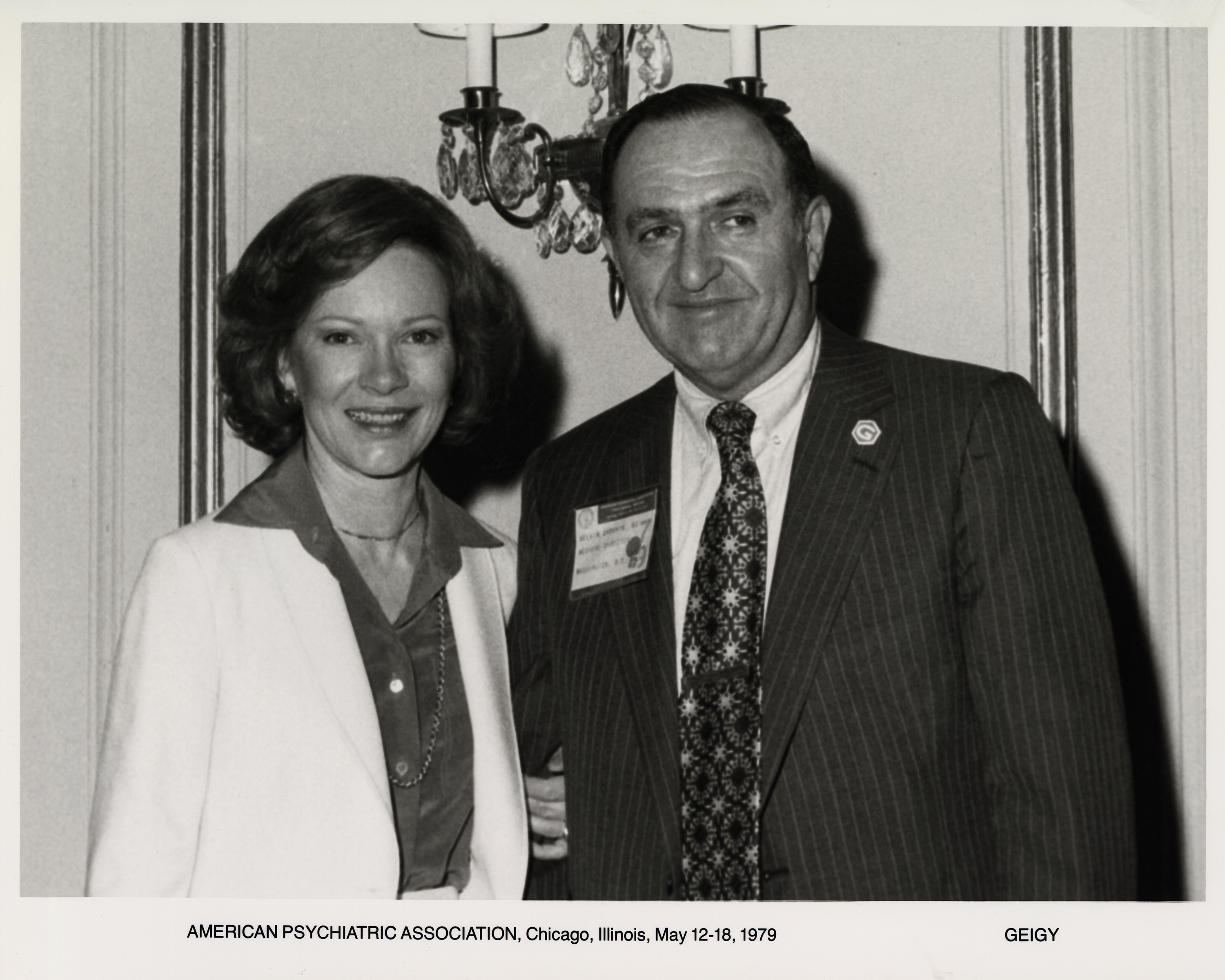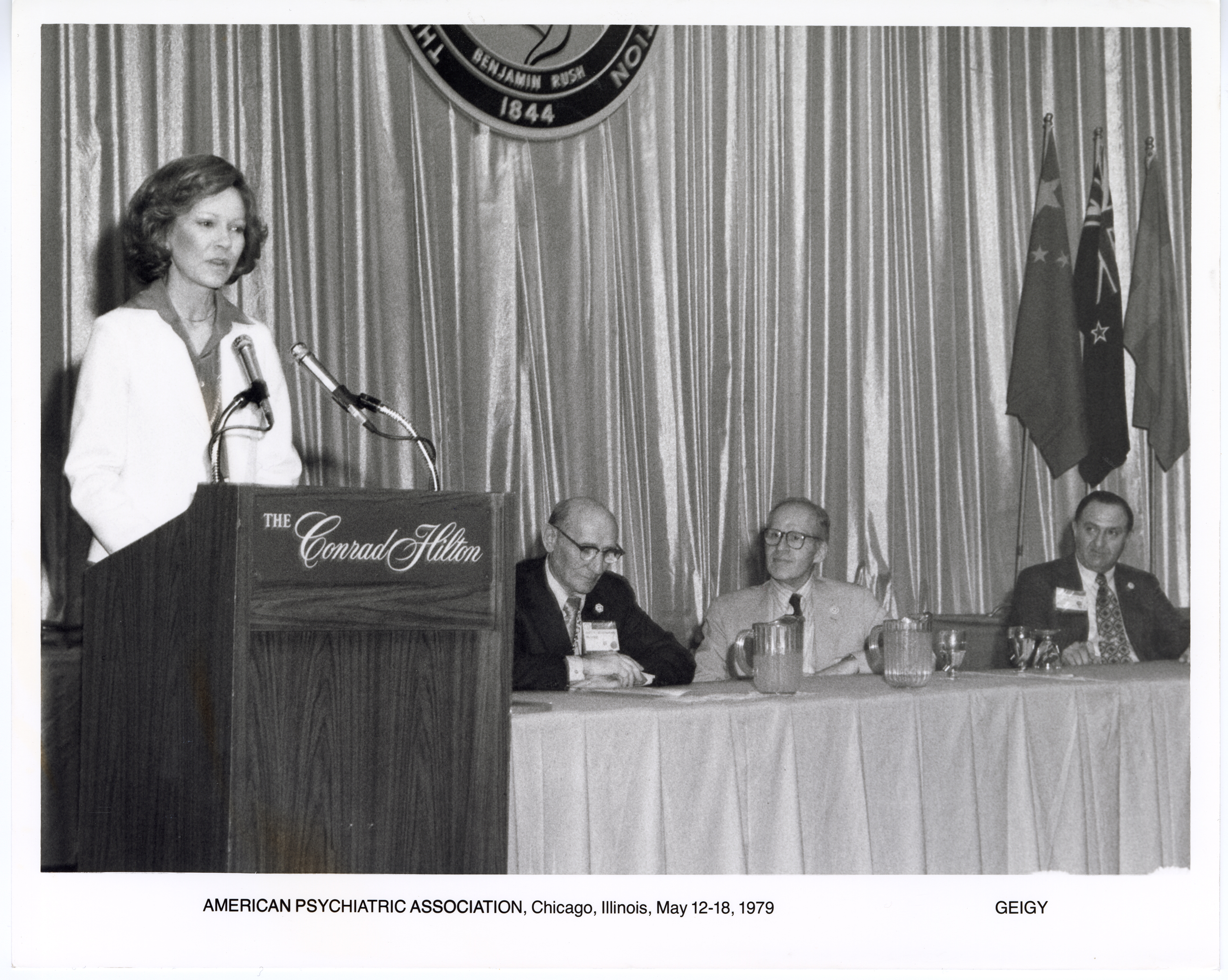Rosalynn Carter: Ahead of Her Time as a Mental Health Advocate
“Since I have been working in this field, I have been told time and time again that the subject [of mental health] is boring, that the public doesn’t care about or indeed is even repelled by those who suffer from mental and emotional disorders, and that the press doesn’t find mental health a ‘sexy’ or important national issue. I do not believe we have the luxury of giving in to these views.”
First Lady Rosalynn Carter

This is how Former First Lady of the United States Rosalynn Carter opened her remarks to the American Psychiatric Association (APA) on May 16, 1979. Nearly 45 years later, it might seem odd to younger generations that mental health was ever treated as a taboo topic. For many, COVID-19 accelerated an irreversible transition to speaking openly about mental health and substance use disorders – but historically, the topic has been treated quite differently by the press, in the workplace, and by legislators.
Rosalynn Carter was among the first public figures outside of the psychiatry community to normalize struggling with mental health and to offer a lens of empathy towards those experiencing serious mental illness. Her advocacy began in 1970 during her service as First Lady of Georgia and continued for decades after her husband’s presidency ended.
To name just a few of her life’s accomplishments: she testified before Congress in 1979 on behalf of the Mental Health Systems Act, initiated the Rosalynn Carter Symposium on Mental Health Policy in 1985, created and served as a chair of the Carter Center’s Mental Health Task Force, and played an instrumental role in the passage of the Mental Health Parity and Addiction Equity Act of 2008. In 1987, she founded the Rosalynn Carter Institute for Caregivers, recognizing the importance of caring not only for those in need of mental health care but also for those charged with caring for individuals with mental illness.

In March 1977, Mrs. Carter gave her first interview as First Lady of the United States, saying that her goal in the role was “for every person who needs mental health care to be able to receive it close to his home, and to remove the stigma from mental health care so people will be free to talk about it and seek help.” Mrs. Carter’s advocacy helped lay the groundwork for much of the APA’s work promoting the public dialogue on mental health today, and her ardent defense of those with mental health conditions was decades ahead of the nation.
Mrs. Carter took full advantage of the access and opportunities afforded to her as First Lady. She was the first First Lady to have her own office and made a habit of sitting in on the President’s Cabinet meetings – an unprecedented move for her time. Like Eleanor Roosevelt and Lady Bird Johnson before her, she played the role of activist during her term in office, while other First Ladies had primarily served a ceremonial role. Repeatedly through their marriage of 77 years, President Carter affirmed that his wife was an equal partner in everything he achieved. The couple enjoyed the longest marriage of any U.S. President and First Lady.
A longtime friend of the APA, Rosalynn Carter was appointed an Honorary APA Fellow and maintained a close relationship with Melvin Sabshin, M.D., the medical director of the APA from 1974 to 1997. Read the APA’s statement on Mrs. Carter’s life to learn more.
Rosalynn Carter passed away Nov. 19, 2023, at the age of 96.
